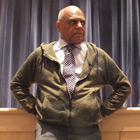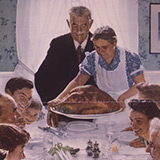
The Warped Logic of School Privatization
Samuel Abrams’s Education and the Commercial Mindset provides the most detailed analysis of school privatization to date, yet overlooks the critical role that anti–union animus plays in fueling it.


Samuel Abrams’s Education and the Commercial Mindset provides the most detailed analysis of school privatization to date, yet overlooks the critical role that anti–union animus plays in fueling it.

In the early 1990s Pelican Bay Prison was a cesspool of brutality. But in ending its worst years, did a judge civilize the cruel practice of solitary confinement?

In his quietly devastating book Another Day in the Death of America, Gary Younge argues that all Americans, not just the ones who pull the trigger, are complicit in gun violence.


George Borjas argues that a protectionist approach towards immigration would be good for American workers. Economists almost universally disagree.


Jan-Werner Müller’s understanding of populism is built on a theory of anti-totalitarianism designed for an enemy that no longer exists.

Somewhere between the apostles and Joel Osteen, mainstream Christianity turned from a wellspring of egalitarian promise into yet another exponent of the market gospel. Two new books chart where things went wrong.

Two new histories show how the CIO of the 1930s and ’40s led the charge for racial equality not just on the shop floor but at the national level, precipitating the Democratic Party’s embrace of civil rights.

A new collection of Elena Ferrante’s correspondence and interviews illuminates how Ferrante pulled away from a male-dominated tradition to define her own genre of popular feminist literature.

Katherine J. Cramer talks about her new book, The Politics of Resentment, and how the right exploits rural-urban divides to promote a populist image.


Ruth Milkman’s Gender, Labor, and Inequality is a story of halting progress for women in the workforce, a march punctuated by setbacks, false starts, and abandonment by purported allies.

Gabriel Zucman’s The Hidden Wealth of Nations offers a plainspoken explanation of what we are constantly told is “too complicated” for us to understand: the myriad legal loopholes the rich exploit to avoid paying taxes, and why closing them should be a priority for the rest of us.

A new biography of key civil rights organizer Bob Moses—who helped spearhead the 1964 Freedom Summer campaign—offers an insightful portrait of a man and a movement whose lessons could not be more relevant today.


The Four Freedoms: Franklin D. Roosevelt and the Evolution of an American Idea by Jeffrey A. Engel Oxford University Press, 2015, 248 pp. The Fight for the Four Freedoms: What Made FDR and the Greatest Generation Truly Great by Harvey …
“Suffering justifies our hard and bitter life,” writes Svetlana Alexievich of Soviet life. “For us, pain is an art.”

Finding Time: The Economics of Work-Life Conflict by Heather Boushey Harvard University Press, 2016, 360 pp. What Works: Gender Equality by Design by Iris Bohnet Harvard University Press, 2016, 400 pp. [contentblock id=3 img=html.png] To illustrate the tensions between work …